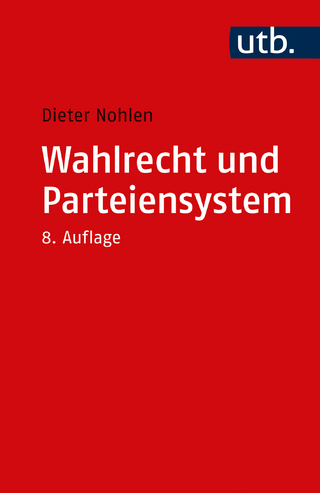
Kuwait
Oil, State and Political Legitimation
Seiten
2000
Ithaca Press (Verlag)
978-0-86372-250-9 (ISBN)
Ithaca Press (Verlag)
978-0-86372-250-9 (ISBN)
- Titel ist leider vergriffen;
keine Neuauflage - Artikel merken
This work defines the state in Kuwait as a political, bureaucratic, ideological and repressive apparatus through which a system of socio-economic and socio-political domination is concentrated by consensus and/or coercion. It also analyzes the impact of the Iraqi invasion of 1990.
Kuwait gained its official political independence from Britain in 1961. Now an independent modern state, it has been ruled by the Al Sabah family since the mid-18th century. Centring on the Kuwaiti state's functional role in the process of political legitimation in an oil-rentier economy, this book is a study of how the state performs roles aimed to distribute substantial welfare and economic benefits to different segments of Kuwaiti society, and how these benefits enable the Al Sabah regime to win the compliance, acceptance and support of the Kuwaiti people. In this study the state machinery is seen as a means by which political domination can be maintained. Hence, the state is defined as a group of institutions which take the form of political, bureaucratic, ideological, and repressive apparatuses, through which a system of socio-economic and socio-political domination is concentrated by consensus and/or coercion. Broadly speaking, under the condition of the oil-rentier economy, where the state controls the main source of national income (i.e. oil revenues), the state can influence and shape the social structure through public expenditure.
Using this theoretical framework, Dr Abdulkarim Al-Dekhayel examines the nature of the oil-rentier economy in Kuwait and the highly centralised position of the state. He discusses the Kuwaiti social structure and the impact of the oil-rentier economy on social formation and the relationship between the state and dominant social forces. The author presents the diverse roles of the state, its policies and achievements in the specific areas of education, public-sector employment, public health services, housing, other welfare services and in the public sector. Through these services and policies the state offers substantial material benefits to different segments of Kuwaiti citizens. Such benefits have ultimately secured the citizens acceptance of the Al Sabah regime and, to varying degrees, their acquiescence and support. In concluding, the author analyses the impact of the Iraqi invasion of 1990 on the political legitimation of the rule of the Al Sabah dynasty.
Kuwait gained its official political independence from Britain in 1961. Now an independent modern state, it has been ruled by the Al Sabah family since the mid-18th century. Centring on the Kuwaiti state's functional role in the process of political legitimation in an oil-rentier economy, this book is a study of how the state performs roles aimed to distribute substantial welfare and economic benefits to different segments of Kuwaiti society, and how these benefits enable the Al Sabah regime to win the compliance, acceptance and support of the Kuwaiti people. In this study the state machinery is seen as a means by which political domination can be maintained. Hence, the state is defined as a group of institutions which take the form of political, bureaucratic, ideological, and repressive apparatuses, through which a system of socio-economic and socio-political domination is concentrated by consensus and/or coercion. Broadly speaking, under the condition of the oil-rentier economy, where the state controls the main source of national income (i.e. oil revenues), the state can influence and shape the social structure through public expenditure.
Using this theoretical framework, Dr Abdulkarim Al-Dekhayel examines the nature of the oil-rentier economy in Kuwait and the highly centralised position of the state. He discusses the Kuwaiti social structure and the impact of the oil-rentier economy on social formation and the relationship between the state and dominant social forces. The author presents the diverse roles of the state, its policies and achievements in the specific areas of education, public-sector employment, public health services, housing, other welfare services and in the public sector. Through these services and policies the state offers substantial material benefits to different segments of Kuwaiti citizens. Such benefits have ultimately secured the citizens acceptance of the Al Sabah regime and, to varying degrees, their acquiescence and support. In concluding, the author analyses the impact of the Iraqi invasion of 1990 on the political legitimation of the rule of the Al Sabah dynasty.
Dr Al-Dekhayel is Associate Professor at the department of political sciences at King Saud University, Saudi Arabia. He gained his Ph.D. in political science from the University of Exeter.
The State and Political Legitimation; The Oil Economy and the Social and Political Structure; The Role of the State in Education; The Role of the State in Public Employment; The Role of the State in Public Health Care; The Role of the State in Housing; The Role of the State in the Private Sector; The Role of the State in Social Welfare.
| Erscheint lt. Verlag | 10.3.2000 |
|---|---|
| Reihe/Serie | International Politics of the Middle East S. ; 7 |
| Verlagsort | Reading |
| Sprache | englisch |
| Themenwelt | Sozialwissenschaften ► Politik / Verwaltung ► Politische Systeme |
| Sozialwissenschaften ► Politik / Verwaltung ► Staat / Verwaltung | |
| Technik ► Elektrotechnik / Energietechnik | |
| ISBN-10 | 0-86372-250-4 / 0863722504 |
| ISBN-13 | 978-0-86372-250-9 / 9780863722509 |
| Zustand | Neuware |
| Haben Sie eine Frage zum Produkt? |
Mehr entdecken
aus dem Bereich
aus dem Bereich


